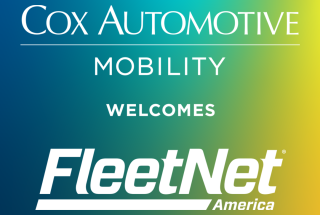What Making Highways Smarter Means for Fleet Managers
What if our highways were smarter?
What would that mean to you?
What would it mean to fleet managers everywhere?
Smarter Highways = Smarter Communication
Imagine the highway able to communicate traffic information, pavement conditions or accidents up ahead. Imagine if the highway itself knew deer were nearby and sent you an alert before approaching the area. Imagine if road lighting automatically adjusted based upon the amount or traffic and time of day. It’s a lot to think about and a lot to take in.
We have been following new technology breakthroughs such as self-inflating tires and self-driving trucks here lately. When you provide mobile truck repair and maintenance services to the transportation industry, it sure is interesting to keep a pulse on possibilities out there and speculate what it could all mean for fleet managers. As with all new technology, it’s a matter of balancing the cost/risk with the potential reward. The idea of having all the information and data “smart highways” can provide is certainly one to think about. Take a look at the below information from a recent Fleetowner.com article on the subject…
“In a project funded by the Federal Highway Administration (FHWA), VTTI is using what’s called a “sideway-force coefficient routine investigation machine,” or SCRIM for short, mounted on a Volvo VHD 430 model truck that will drive thousands of miles through Florida, Texas, Indiana, and Washington collecting data on roadway friction, cross-slope, macro-texture, grade, temperature, and curvature—all while driving at up to 50 mph.
Those measurements will be cross-referenced with crash data to identify potentially high-risk friction areas. With that data, improvements can then be made to improve roadway friction. The higher the friction, the better the grip a vehicle’s tires will have with the road, notes Gerardo Flintsch, director of VTTI’s center for sustainable transportation infrastructure.”
More Efficiency
Fleet managers and drivers alike spend hours each month manually preparing and submitting paperwork for inspections, permits, etc. One of the biggest areas of potential for connecting vehicles to the road and the road to the vehicles is being able to easily transmit information that cuts back on the amount of time spend doing these tasks. This can be achieved by creating a wireless communication system that interacts with the highway network. While the idea is great in theory, the big obstacle, as with much of new technology, becomes cost.
From our standpoint, the potential for cost savings as it relates to fleet managers is definitely there. All of the data gathered could be meaningful in helping to prevent accidents and prolong equipment usage in conjunction with an effective truck repair and maintenance plan. As with all new technologies, it’s not what the data shows that matters, it’s what you do with it. Making the highways smarter would certainly result in more data for fleet managers to take in, the important part is being prepared to make decisions based upon that really impact business.
The Future of Truck Maintenance
Whether it’s self-driving trucks, self-inflating tires or smarter highways, all of these new technologies have the potential to positively affect truck maintenance. This is great news for fleet managers, since truck repair and maintenance was among the top areas to improve upon in the recent “Trucking By The Numbers Report.” Gathering data about how/when equipment performs its best and being able to make calculated decisions based upon this data means spending money wiser. To sum it all up, these technologies used together mean less down time and more time rolling/making money.
Let’s make technology work for you. Dickinson Fleet Services is the one call…one source for all of your truck needs. Call us at 855-DFS-4111 or contact us online today!

